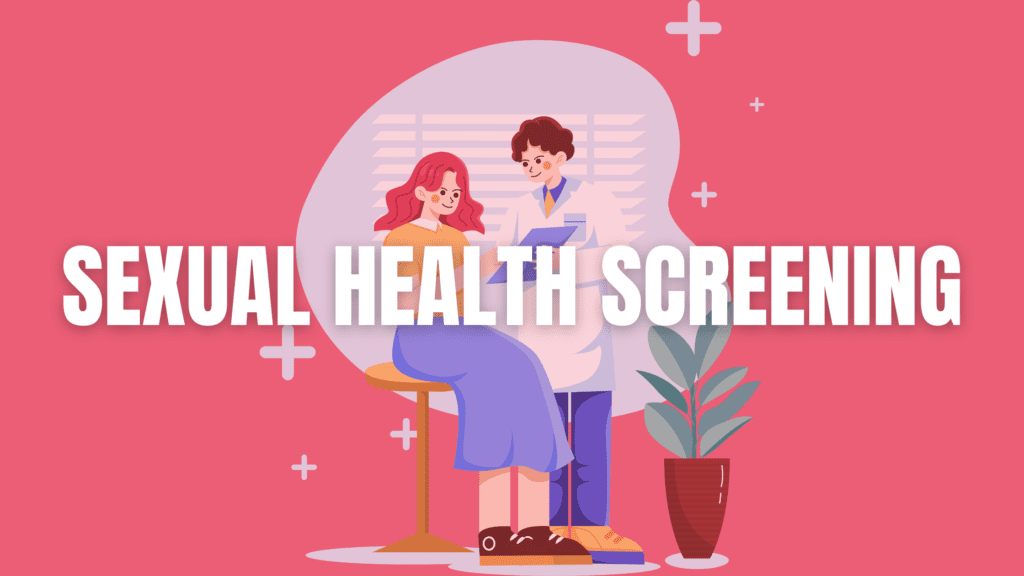Taking care of your sexual health is just as important as taking care of any other aspect of your well-being. One of the best ways to ensure you’re staying healthy is by getting regular sexual health screenings. However, many people feel nervous or unsure about what the process involves. This blog aims to demystify sexual health screening and provide you with all the information you need to approach them confidently.
What Is Sexual Health Screening?
A sexual health screening is a check-up that tests for sexually transmitted infections (STIs) and other conditions that can affect your reproductive health. Depending on your circumstances, the screening may include:
- Testing for common STIs, like chlamydia, gonorrhea, syphilis, and HIV.
- Screening for HPV, herpes, or hepatitis B and C.
- Pelvic exams (for people with vaginas) or genital exams.
- Blood or urine tests, and sometimes swab tests of the genital area or throat.
The screening is tailored to your sexual history, behaviors, and risk factors.
Why Are Sexual Health Screenings Important?
- STIs Are Often Asymptomatic:
Many STIs, like chlamydia and gonorrhea, may not show symptoms, especially in the early stages. Regular screenings help catch these infections early before they cause complications. - Prevent Long-Term Health Issues:
Untreated STIs can lead to serious health problems, such as infertility, pelvic inflammatory disease, or an increased risk of contracting HIV. - Protect Your Partner(s):
Knowing your status allows you to protect your sexual partner(s) by taking appropriate precautions or seeking treatment if needed. - Promote Peace of Mind:
Regular screenings provide reassurance and help you focus on enjoying a healthy and confident sex life.
Who Should Get a Sexual Health Screening?
The frequency and type of screening you need depend on your age, sexual activity, and risk factors. Here are some general guidelines:
- Sexually Active Individuals: If you’re sexually active, especially with multiple partners, aim to get screened at least once a year.
- After a New Partner: Consider getting tested before becoming sexually active with a new partner.
- If You’ve Had Unprotected Sex: If you’ve had unprotected sex or suspect exposure to an STI, seek testing as soon as possible.
- During Pregnancy: Pregnant individuals should get screened for certain STIs to protect their health and that of their baby.
- Men Who Have Sex with Men (MSM): Regular screenings, every 3-6 months, are often recommended for sexually active MSM.
What Happens During a Sexual Health Screening?
The process is straightforward and varies depending on the tests you need. Here’s what you can expect:
- Taking Your History:
The healthcare provider will ask about your sexual history, including the number of partners, types of sexual activities, and condom use. Be honest, it helps them recommend the right tests for you. - Physical Examination (If Needed):
They may perform a physical exam to check for visible symptoms, such as sores, rashes, or discharge. - Testing:
- Urine Sample: Often used to test for chlamydia and gonorrhea.
- Blood Test: Used for HIV, syphilis, and hepatitis.
- Swab Test: A swab of the genitals, throat, or rectum may be taken if needed.
- Results:
Some results are available immediately, while others may take a few days. Your healthcare provider will explain how you’ll receive the results and any next steps.
Does a Screening Hurt?
Most screening methods are quick and relatively painless. Blood tests involve a small needle prick, while urine samples and swabs are typically discomfort-free. If you’re nervous, let your provider know, they’re there to help you feel at ease.
How to Prepare for a Sexual Health Screening
- Avoid Urinating Before Your Appointment:
If you’re having a urine test, try not to urinate for at least 1-2 hours beforehand. - Note Your Symptoms:
If you’ve noticed unusual discharge, pain, or other symptoms, write them down to share with your provider. - Know Your History:
Be ready to discuss your sexual history honestly, it’s confidential and helps the provider give you the best care. - Don’t Be Embarrassed:
Healthcare providers are professionals who’ve seen it all. They’re there to help, not judge.
What If You Test Positive for an STI?
First, take a deep breath, most STIs are treatable, and many are curable. If your results show an infection:
- Your provider will explain your treatment options, such as antibiotics or antiviral medications.
- Follow the prescribed treatment plan completely, even if symptoms go away.
- Inform your partner(s) so they can get tested and treated if necessary.
FAQs About Sexual Health Screenings
1. Do I Need to Get Tested If I Use Condoms?
Yes! While condoms significantly reduce the risk of STIs, they don’t eliminate it entirely. Screenings are still important.
2. How Much Does a Sexual Health Screening Cost?
Costs vary depending on where you live and the tests you need. Many clinics offer free or low-cost testing.
3. Is the Process Confidential?
Yes, sexual health screenings are private and confidential. Your results won’t be shared without your permission.
Final Thoughts
Getting a sexual health screening is a responsible and empowering step in taking charge of your health. It’s not just about identifying potential issues, it’s about ensuring your well-being, protecting your partner(s), and fostering open communication in your relationships.
By making screenings a routine part of your health care, you can enjoy a safer, more confident sex life. So, schedule your appointment today—it’s a simple act with lasting benefits.

